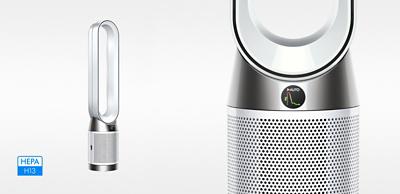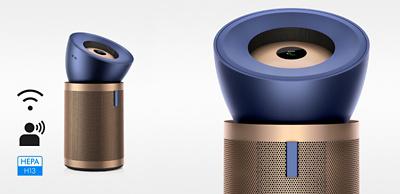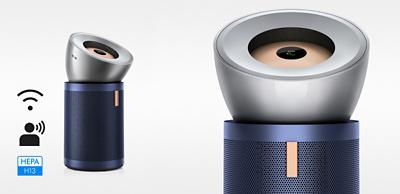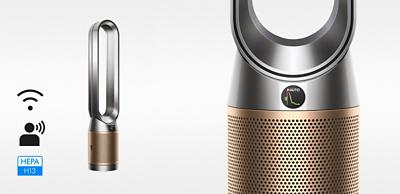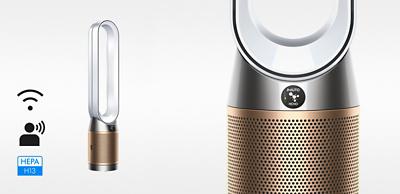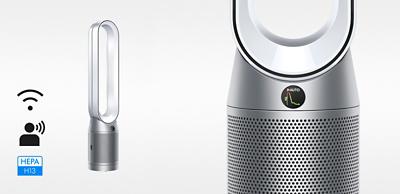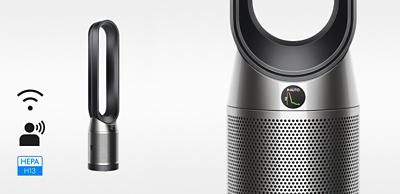
Compare
-
Dyson Purifier Big+Quiet Formaldehyde BP04
Latest technology
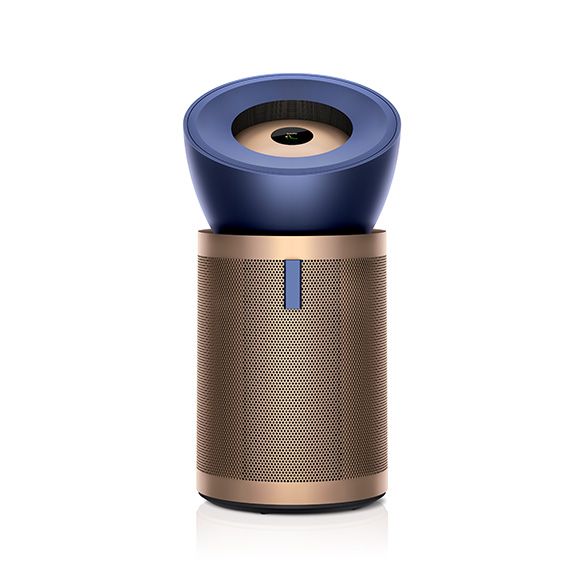 from $1099.99Dyson Purifier Big + Quiet Formaldehyde BP04
from $1099.99Dyson Purifier Big + Quiet Formaldehyde BP04 -
Dyson Purifier Big+Quiet Formaldehyde BP03
Latest technology
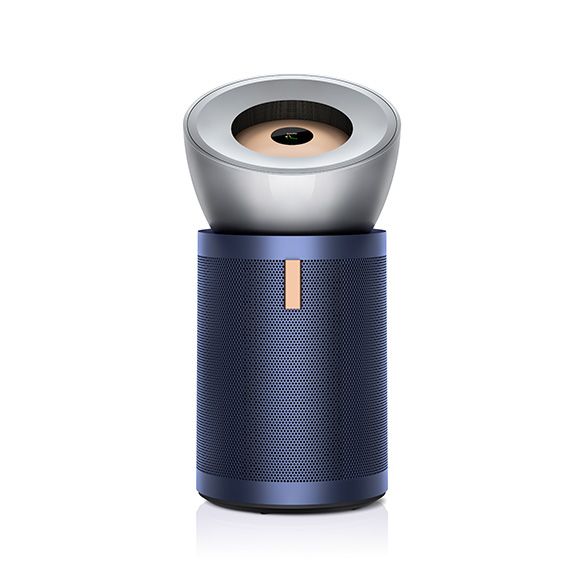 from $999.99Dyson Purifier Big + Quiet Formaldehyde BP03
from $999.99Dyson Purifier Big + Quiet Formaldehyde BP03 -
Dyson Purifier Formaldehyde™ TP09
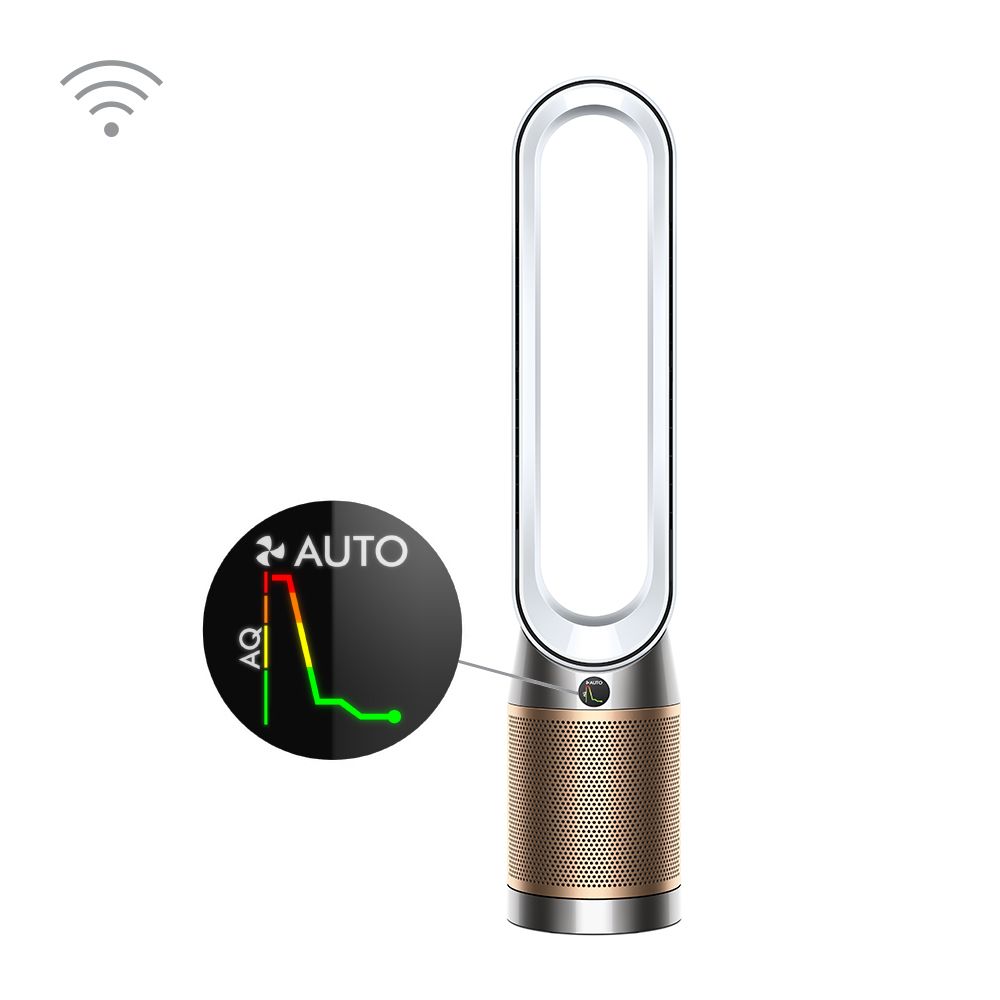 from $749.99Dyson Purifier Formaldehyde™ TP09
from $749.99Dyson Purifier Formaldehyde™ TP09 -
Dyson Purifier Cool™ TP07
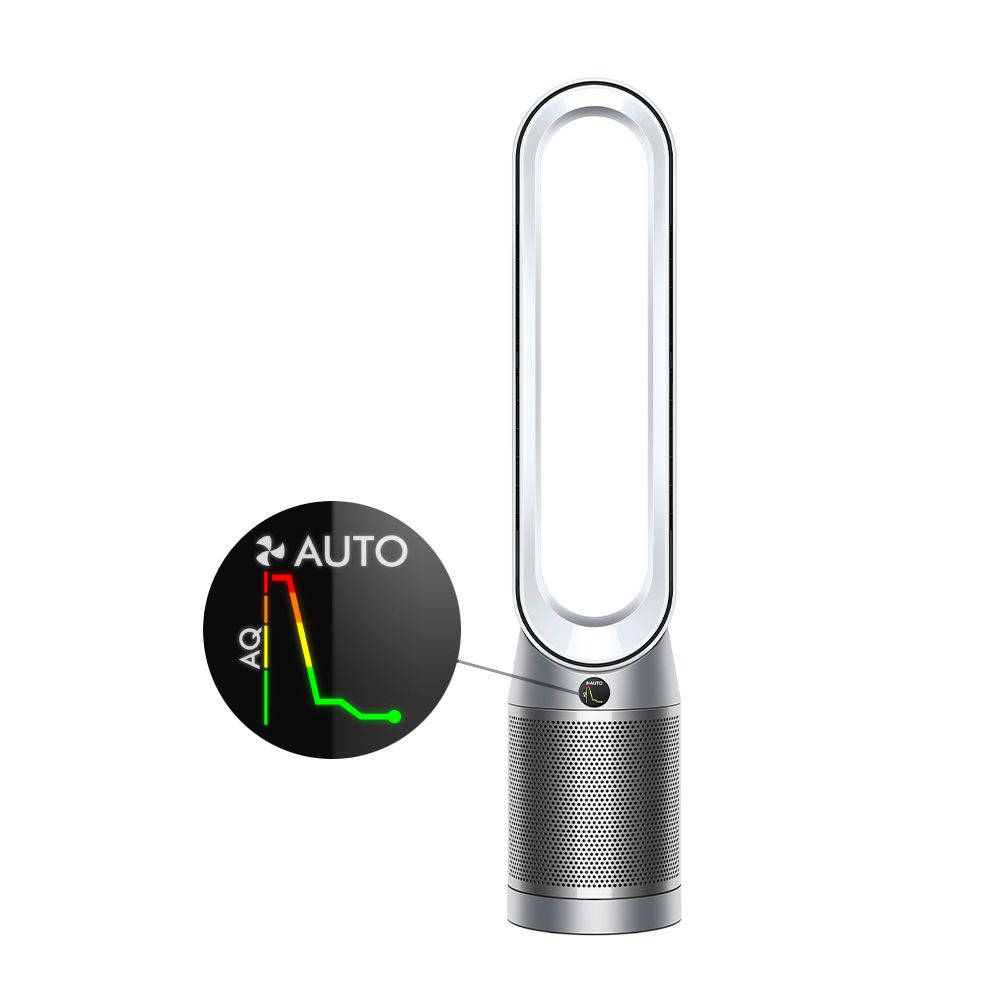 from $499.99Dyson Purifier Cool™ TP07
from $499.99Dyson Purifier Cool™ TP07 -
Dyson Purifier Cool™ Gen1 TP10
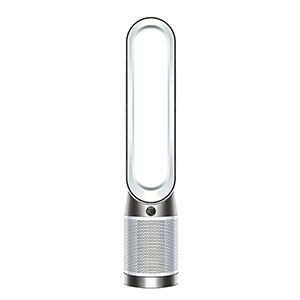 from $499.99Dyson Purifier Cool™ Gen1 TP10
from $499.99Dyson Purifier Cool™ Gen1 TP10
Dyson Cryptomic technology™
Continuously destroys formaldehyde released from household items.
-
Dyson Purifier Big+Quiet Formaldehyde BP04

-
Dyson Purifier Big+Quiet Formaldehyde BP03

-
Dyson Purifier Formaldehyde™ TP09

-
Dyson Purifier Cool™ TP07

-
Dyson Purifier Cool™ Gen1 TP10

HEPA filtration
Fully sealed to HEPA H13 standard.
-
Dyson Purifier Big+Quiet Formaldehyde BP04
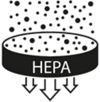
-
Dyson Purifier Big+Quiet Formaldehyde BP03

-
Dyson Purifier Formaldehyde™ TP09

-
Dyson Purifier Cool™ TP07

-
Dyson Purifier Cool™ Gen1 TP10

Projection
Powerfully projects air evenly around your space.
-
Dyson Purifier Big+Quiet Formaldehyde BP04

Largest spaces
-
Dyson Purifier Big+Quiet Formaldehyde BP03

Largest spaces
-
Dyson Purifier Formaldehyde™ TP09

Whole room projection
-
Dyson Purifier Cool™ TP07

Whole room projection
-
Dyson Purifier Cool™ Gen1 TP10

Whole room projection
Carbon filter
Two different levels of carbon and k-carbon filtration to capture NO₂.
-
Dyson Purifier Big+Quiet Formaldehyde BP04

Absorbs 3x more NO₂ ³
-
Dyson Purifier Big+Quiet Formaldehyde BP03
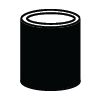
Absorbs NO₂
-
Dyson Purifier Formaldehyde™ TP09

Absorbs NO₂
-
Dyson Purifier Cool™ TP07

Absorbs NO₂
-
Dyson Purifier Cool™ Gen1 TP10

Absorbs NO₂
Co₂ sensing
Senses and report air quality levels in real-time.
-
Dyson Purifier Big+Quiet Formaldehyde BP04

-
Dyson Purifier Big+Quiet Formaldehyde BP03

-
Dyson Purifier Formaldehyde™ TP09

-
Dyson Purifier Cool™ TP07

-
Dyson Purifier Cool™ Gen1 TP10

MyDyson™ App enabled▴
Works with Amazon Alexa, Google Home, and Apple Siri.▴ Standard data and messaging rates may apply.
-
Dyson Purifier Big+Quiet Formaldehyde BP04

-
Dyson Purifier Big+Quiet Formaldehyde BP03

-
Dyson Purifier Formaldehyde™ TP09

-
Dyson Purifier Cool™ TP07

-
Dyson Purifier Cool™ Gen1 TP10

Filter longevity
Standard genuine Dyson filter lifespan in years.
-
Dyson Purifier Big+Quiet Formaldehyde BP04
HEPA Filter: 5 years
Activated K-Carbon Filter: every 2 years or when alerted by the MyDyson™ app.
-
Dyson Purifier Big+Quiet Formaldehyde BP03
HEPA Filter: 5 years
Activated Carbon Filter: every 2 years or when alerted by the MyDyson™ app
-
Dyson Purifier Formaldehyde™ TP09
12 months or when alerted by the MyDyson™ app
-
Dyson Purifier Cool™ TP07
12 months or when alerted by the MyDyson™ app
-
Dyson Purifier Cool™ Gen1 TP10
12 months or when alerted by the machine
Backward Airflow
Purifies withouth cooling you.
-
Dyson Purifier Big+Quiet Formaldehyde BP04

-
Dyson Purifier Big+Quiet Formaldehyde BP03

-
Dyson Purifier Formaldehyde™ TP09

-
Dyson Purifier Cool™ TP07

-
Dyson Purifier Cool™ Gen1 TP10

LCD screen
Real-time air quality reporting with LCD screen.
-
Dyson Purifier Big+Quiet Formaldehyde BP03

PM 2.5, PM 10, VOCs, NO₂, Formaldehyde, CO₂, Temperature and Humidity
-
Dyson Purifier Formaldehyde™ TP09

PM 2.5, PM 10, VOCs, NO₂, Formaldehyde, CO₂, Temperature and Humidity
-
Dyson Purifier Cool™ TP07

PM 2.5, PM 10, VOCs, NO₂, Formaldehyde, CO₂, Temperature and Humidity
-
Dyson Purifier Cool™ Gen1 TP10

PM 2.5, PM 10, VOCs, NO₂, Temperature and Humidity
-

PM 2.5, PM 10, VOCs, NO₂, Temperature and Humidity
Vertical angle adjustment
Fixed and adjustable angles to change airflow direction.
-
Dyson Purifier Big+Quiet Formaldehyde BP04
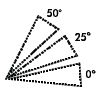
-
Dyson Purifier Big+Quiet Formaldehyde BP03

-
Dyson Purifier Formaldehyde™ TP09

-
Dyson Purifier Cool™ TP07

-
Dyson Purifier Cool™ Gen1 TP10

Oscillation
Adjustable oscillation projects puriified air around the whole room
-
Dyson Purifier Big+Quiet Formaldehyde BP04

-
Dyson Purifier Big+Quiet Formaldehyde BP03

-
Dyson Purifier Formaldehyde™ TP09
Up to 350 degrees
-
Dyson Purifier Cool™ TP07
Up to 350 degrees
-
Dyson Purifier Cool™ Gen1 TP10
Up to 350 degrees
Automatic monitoring
3 sensors automatically monitor pollution events in real time.
-
Dyson Purifier Big+Quiet Formaldehyde BP04

-
Dyson Purifier Big+Quiet Formaldehyde BP03

-
Dyson Purifier Formaldehyde™ TP09

-
Dyson Purifier Cool™ TP07

-
Dyson Purifier Cool™ Gen1 TP10

Remote control
The neatly-stored remote allows you to quickly change settings.
-
Dyson Purifier Big+Quiet Formaldehyde BP04
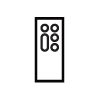
-
Dyson Purifier Big+Quiet Formaldehyde BP03

-
Dyson Purifier Formaldehyde™ TP09

-
Dyson Purifier Cool™ TP07

-
Dyson Purifier Cool™ Gen1 TP10

Energy Star Certified
-
Dyson Purifier Big+Quiet Formaldehyde BP04

-
Dyson Purifier Big+Quiet Formaldehyde BP03

-
Dyson Purifier Formaldehyde™ TP09

-
Dyson Purifier Cool™ TP07

-
Dyson Purifier Cool™ Gen1 TP10

- Dyson Purifier Big+Quiet Formaldehyde BP04 Shop now Explore Dyson Purifier Big + Quiet Formaldehyde BP04
- Dyson Purifier Big+Quiet Formaldehyde BP03 Shop now Explore Dyson Purifier Big + Quiet Formaldehyde BP03
- Dyson Purifier Formaldehyde™ TP09 Shop now Explore Dyson Purifier Formaldehyde™ TP09
- Dyson Purifier Cool™ TP07 Shop now Explore Dyson Purifier Cool™ TP07
- Dyson Purifier Cool™ Gen1 TP10 Shop now Explore Dyson Pure Cool™ TP01
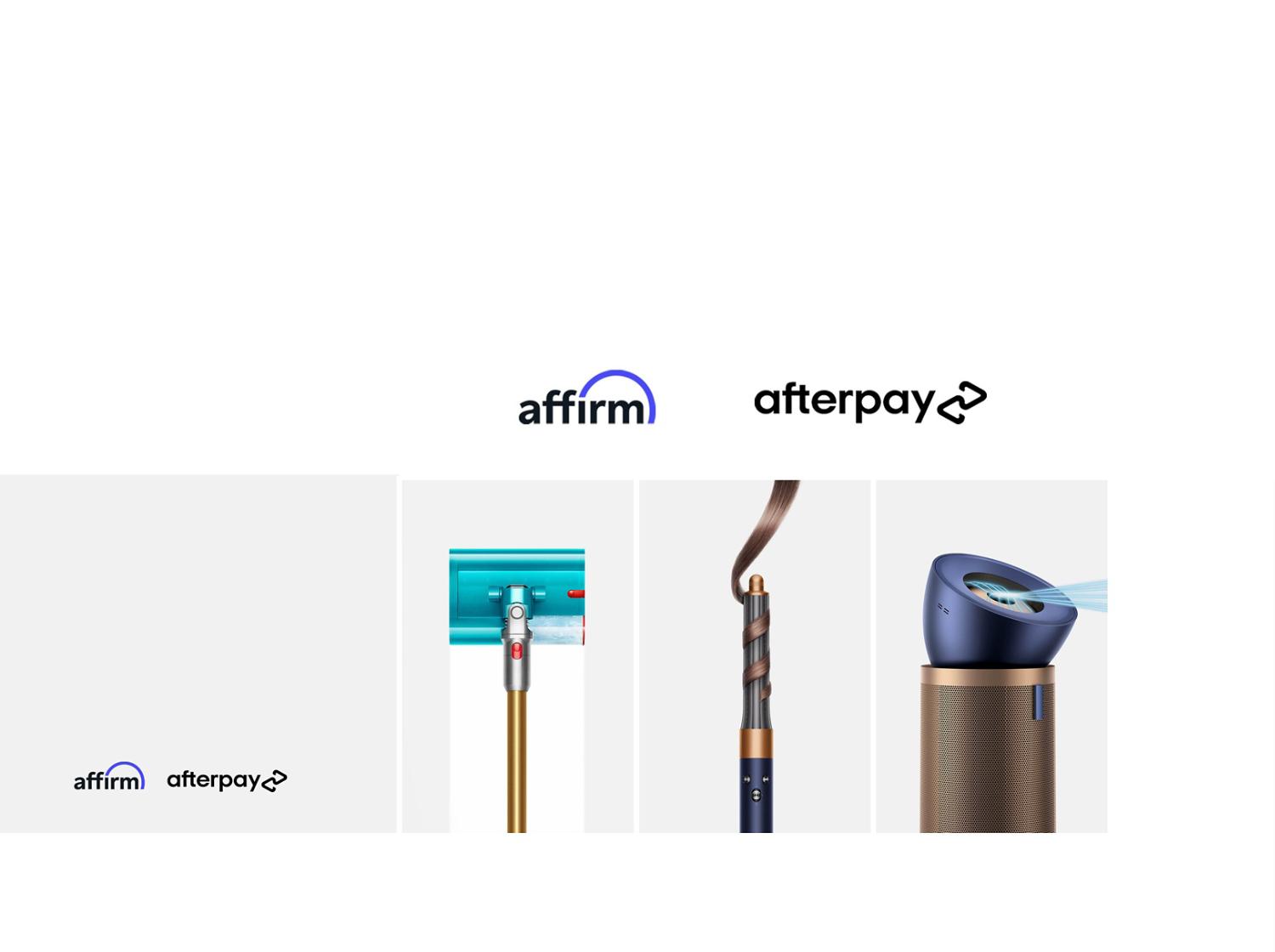
Choose your model
Explore Dyson air purifiers by functionality
Dyson offers a range of advanced purifiers that remove gases and odors and capture 99.97% of allergens* and pollutants 0.3 microns in size.
-
Purify and cool you
-
Purify, humidify, and cool you
-
Get more from your Dyson with the MyDyson™ app▴
-
Expert guides and content
From quick-start and how-to guides to understanding different modes and screens. All tailored to you and your machines.
-
Automated filter alerts
You'll never need to worry about when to replace your filter. We'll let you know. Helping your machine to always perform at its best.
-
Tailored 24/7 support
Maintenance advice and troubleshooting, when you need it. You can also activate tailored machine support, direct to your inbox.
▴The MyDysonTM app is only compatible with select Dyson products. For a list of compatible products, please click here.
-
Allergens
An allergen is a substance that can cause an allergic reaction by triggering the body’s immune system. Common indoor allergens include pet dander and pollen.
-
Bacteria
Microscopic, single-celled organisms that exist in their millions, in every environment. Not all bacteria are harmful, but some can have adverse effects, such as E. coli.
-
Benzene
Benzene is colorless, flammable liquid produced by both natural and man-made processes. It’s a natural part of crude oil, gasoline, and cigarette smoke. Indoors, it comes from products such as glues, paints, furniture wax, and detergents.
-
Carbon dioxide (CO₂)
A colorless greenhouse gas, which comes from the extraction and burning of fossil fuels. Increased CO₂ levels can impact cognitive function.
-
Formaldehyde
This colorless, flammable gas is used in some building materials and household products. Sources can include some fabrics found in flooring and furniture, glues, paints, varnishes, air fresheners, and household cleaners.
-
H1N1 virus
This subtype of Influenza A virus, also known as swine flu, caused a global flu outbreak. H1N1 produces respiratory infectious diseases in humans and pigs. Symptoms can be similar to seasonal flu.
-
HEPA 13
HEPA (High Efficiency Particulate Air) is an air filter efficiency standard and a measure of a filter’s performance. To achieve this standard, filters must meet a minimum of 99.95 per cent particle removal at the most penetrating particle size.
-
Humidification
A process of increasing air moisture content through the addition of water vapor or steam. Humidifiers can add moisture to the air in dry conditions, creating a more comfortable indoor environment when needed.
-
Microns
Airborne particles are usually described in microns. One micron is equal to one-millionth of a meter. The human eye can see debris and dust that are approximately 25 microns in size.
-
Nitrogen dioxide (NO₂)
Nitrogen dioxide is a liquid below 21.2 °C and a gas at higher temperatures. It is toxic to humans in both states in high concentrations. Gas stoves and space heaters are the most common indoor sources of NO₂ emissions. Other sources include improperly vented furnaces and water heaters.
-
Pet dander
Pet dander is made up of tiny particles of skin, saliva and urine, shed by animals with fur or feathers. Pet dander lingers in the air before settling on surfaces such as furniture, bedding, and fabrics. Exposure to these airborne particles can trigger allergies.
-
Particulate matter (PM)
Particulate matter contains microscopic solids or liquid droplets, measured in microns. Indoor PM can be generated through many day-to-day activities such as cooking, cleaning, and the burning of candles and fires.
-
Purification
The process of reducing unwanted contaminants. Air purification is intended to remove airborne pollutants. Depending on the method, air purification can remove dust, allergens, or viruses.10
-
Volatile organic compounds (VOCs)
Volatile organic compounds are potentially harmful gases found in many household products. Common sources include paints, varnishes, air fresheners, cosmetics, and cleaning products.
-
Pollen
Pollen is a powdery substance released from seed plants as part of their reproduction process. It typically appears from trees in the spring, grasses in the summer, and weeds in the autumn. Pollen grains are among the most common allergens.
-
House dust mites
Dust mites are tiny insects that commonly live in household dust. They are one of the biggest causes of allergies. Each gram of house dust contains approximately 1000 dust mites.
-
Aspergillus mould
A common name for a visible group of fungi, mold thrives wherever there is dampness – sending out millions of spores into the air. Exposure to mold occurs via inhalation, skin contact, or ingestion.
Frequently asked questions - Air Purifiers
Yes, air purifiers can be effective in improving indoor air quality by removing harmful particles and pollutants from the air.
Air purifiers work by using a combination of filters and technologies, such as HEPA (High Efficiency Particulate Air) filters, activated carbon, and other technologies to capture and eliminate airborne particles, such as dust, allergens, mold spores, pet dander, and even bacteria and viruses. ¹⁰
Yes, air purifiers can help with dust by capturing and removing airborne particles from the air.
Dust and other small particles may contribute to respiratory problems and allergies. High Efficiency Particulate Air (HEPA) filters are especially effective at capturing tiny particles like dust, pollen, and pet dander. ¹⁰
Whether an air purifier is worth it or not depends on your specific needs and circumstances.
Air purifiers can be beneficial for people who want to improve indoor air quality in general. They can help to remove harmful particles and pollutants from the air, including dust, allergens, pet dander, and some are proven to filter bacteria, viruses, and mold spores. ¹⁰
An air purifier is a device that cleans the air in a room or a building by removing potentially harmful particles and pollutants, such as dust, pollen, pet dander, and other airborne contaminants. ¹⁰
It works by drawing air through a filter, which traps these particles and releases cleaner air back into the room.
Some of the benefits of using an air purifier include:
- Improved indoor air quality: An air purifier can remove harmful particles and pollutants from the air, leading to cleaner air indoors.
- Reduced odors: Some air purifiers can help to remove unpleasant odors from the air, such as those caused by cooking, pets, or smoking.
Yes, air purifiers can help to remove allergens such as pollen, dust, and pet dander from the air.
Air purifiers work by drawing in air and passing it through a filter, which traps pollutants and allergens. Some air purifiers are specifically designed with HEPA (High-Efficiency Particulate Air) filters, which have a high removal percentage for very small particles, including many common allergens.
Studies have shown that using an air purifier with a HEPA filter can help to reduce the concentration of airborne allergens in indoor spaces.
Some air purifiers are proven to capture mold spores and other allergens from the air.
Mold spores can cause respiratory problems and other health issues. Some air purifiers are proven effective at removing mold spores from the air by using HEPA filters or other technologies designed to capture and eliminate airborne particles. HEPA filters can capture particles of very small size, including mold spores.
Some air purifiers can help with removing unpleasant odors and smells from the air.
Certain air purifiers are equipped gas-capture technologies such as activated carbon filters. Activated carbon absorbs and remove certain odors, gases, and chemical fumes from the air.
Activated carbon filters contain a porous material, such as activated charcoal, which traps and eliminates odors and volatile organic compounds (VOCs).
To get the most out of an air purifier, it's important to place it in the right location.
If you're using an air purifier to address a specific source of pollution, such as smoke from a fireplace or cooking fumes, it's best to place the air purifier as close to the source as possible to capture the pollutants before they spread.
For general air cleaning, place the air purifier in the center of the room, away from walls or furniture, to allow for maximum airflow and coverage.
An air purifier is not designed to directly help with humidity levels in the air.
An air purifier is not a substitute for a humidifier or dehumidifier if you are looking to control humidity levels in your home or office.
Yes, air purifiers can be effective in reducing the impact of wildfire smoke on indoor air quality. Wildfire smoke contains a variety of harmful pollutants, including fine particles (PM2.5), volatile organic compounds (VOCs), and other potentially toxic substances. Air purifiers with high-efficiency particulate air (HEPA) filters can effectively capture and remove these particles from the air.
Air purifiers with HEPA filters can be effective at removing many wildfire smoke particles from indoor air. Additionally, activated carbon filters, often included in air purifiers, can help reduce the levels of VOCs and odors associated with wildfire smoke.
When using an air purifier for wildfire smoke, it's important to choose a model with appropriate coverage for your room size and ensure that the device runs continuously in the affected areas. Keeping doors and windows closed also helps prevent outdoor smoke from infiltrating the indoor environment.
It's worth noting that while air purifiers can help to improve indoor air quality during wildfires, they may not eliminate all pollutants. Factors such as the proximity of the wildfire, the intensity of the smoke, and the overall ventilation in your home can affect the effectiveness of air purifiers. In severe cases, it may be advisable to seek additional measures or temporary relocation if the air quality poses a serious health risk.
▴The MyDysonTM app is only compatible with select Dyson products. For a list of compatible products, please click here.
¹Testing for PM2.5 purification completed in a large testing chamber following relevant Dyson testing methods. Results may vary in practice.
*Allergens refer to non-living materials.
⁺Third party full machine testing based on GB/T 18801-2015 formaldehyde destruction. Results may vary in practice.
²Gas capture rates may vary.
³Fan; not air conditioning unit
⁴Compared to adsorption by the standard carbon filter in Dyson Purifier Big+Quiet Formaldehyde (BP03).
⁵Requires device to run app, Wi-Fi or mobile data, Bluetooth 4.0 support, and iOS version 10 or Android version 5 (or above). Standard data and messaging rates may apply. Refer to the MyDyson app for compatible voice services
⁶Levels selected based on scientific literature. Ventilation alert when CO2 levels are 1500ppm or above.
⁸Tested In maximum setting for air projection, tested in Auto mode for purification coverage.
⁹Particle challenge by DEHS oil specified in EN1822 within a chamber specified in ASTM F3150.
¹⁰ Not intended as a product claim. Refer to individual Dyson models for specific capture claims.
The energy efficiency of this ENERGY STAR certified model is measured based on a ratio between the model’s CADR for Smoke and the electrical energy it consumers, or CADR/Watt.










